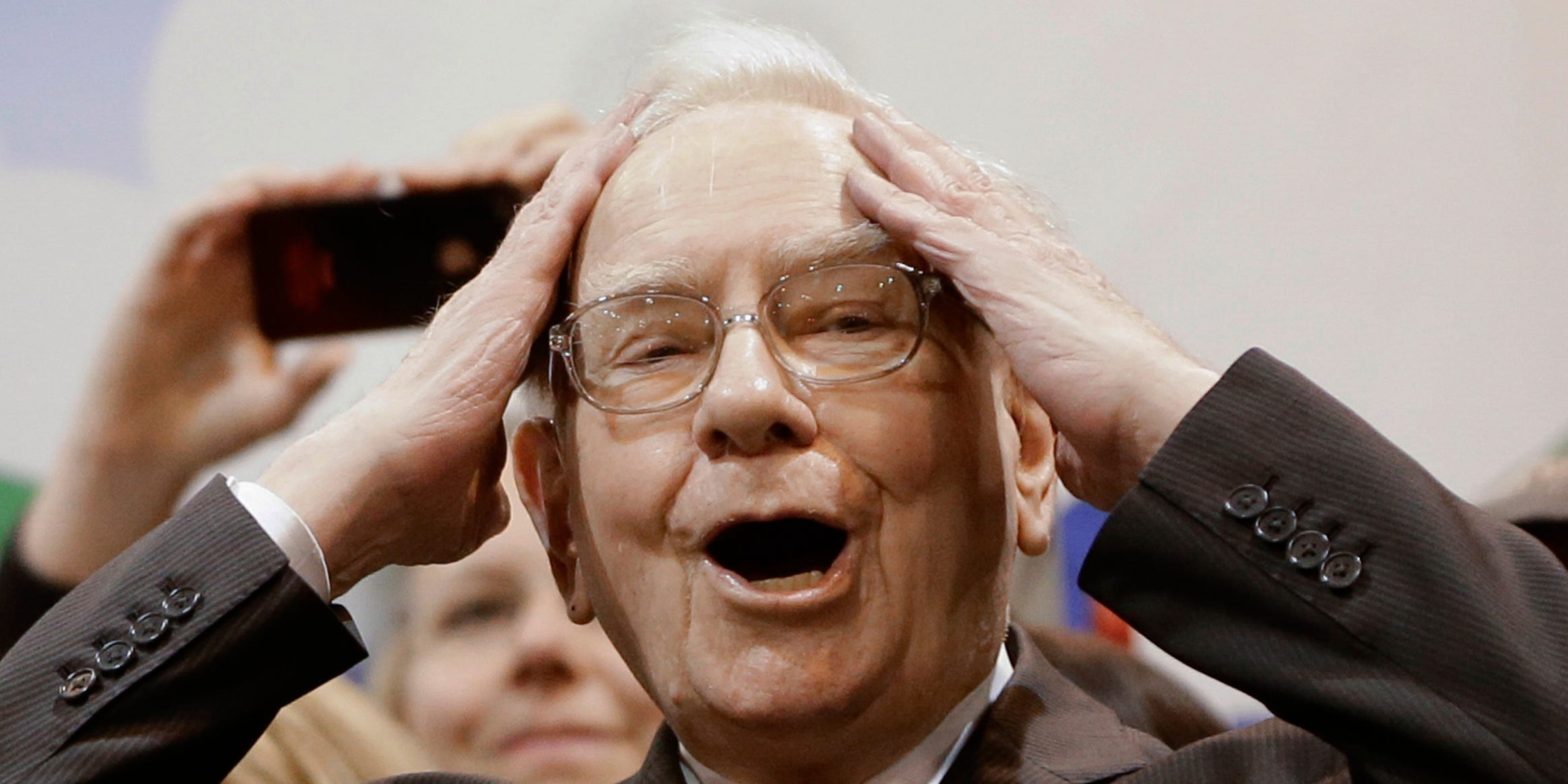Warren Buffett’s annual salary has been $100,000 for more than 40 years. Berkshire Hathaway spends triple that amount on his security each year. Buffett lives modestly despite owning about $100 billion of Berkshire stock. Loading Something is loading.
Thanks for signing up!
Access your favorite topics in a personalized feed while you’re on the go.
Warren Buffett is an investing icon, the boss of Berkshire Hathaway, and one of the richest people on the planet. Yet he earns a modest annual salary of $100,000 — and hasn’t seen a pay rise in over 40 years, Securities and Exchange Commission filings show.
As Berkshire’s CEO and chairman, Buffett recommends to his board of directors how much he should be paid, and decides the rest of the executives’ compensation. The 92-year-old has received $100,000 a year since 1980 — a fraction of the $18 million average pay of S&P 500 CEOs in 2021.
Buffett doesn’t earn much from other sources either. He netted double his salary in annual directors’ fees in the 1990s and early 2000s, before he resigned as a director of The Washington Post Company and stepped down from other corporate boards.
The highest annual compensation he’s ever received at Berkshire was $525,000 in 2010, comprising his $100,000 salary, $75,000 in directors’ fees, and $350,000 allocated to his security costs.
Berkshire spends far more on Buffett’s personal and home security than it pays him directly. Keeping the boss safe has cost the company roughly $300,000 a year since 2008, or about $5 million in total.
Buffett isn’t in desperate need of a big salary. He owns roughly $100 billion of Berkshire stock — which he’s gradually giving away — and doesn’t spend much: he lives in a modest family home, drives a basic car, and eats breakfast at McDonald’s.
The investor also doesn’t use a company car, belong to any clubs where Berkshire pays his dues, or commandeer company-owned aircraft for his personal use.
Buffett shared his views on salaries at Berkshire’s annual shareholder meeting in 2017, when he was asked how much his successor would be paid. He expressed hope that the next CEO would already be rich, and wouldn’t be motivated to earn 10 or 100 times the money their family needs to live on.
“They might even wish to, perhaps, set an example by engaging for something far lower than, actually, what you can say their true market value is,” he continued, adding it would be “terrific” if that was the case.
Read more: JPMorgan says buy these 50 beaten-down stocks as traders continue to flee high-flyers and pile into cheaper names
Buffett is a firm believer that CEOs should be incentivized to deliver long-term success for their companies. He believes massive annual salaries, bonuses, and short-term stock options encourage short-term thinking.
Charlie Munger — Buffett’s right-hand-man and Berkshire’s vice-chairman — has followed Buffett’s example. He’s also received an annual salary of $100,000 for several decades now, SEC filings show.
In contrast, Ajit Jain and Greg Abel, who head up Berkshire’s insurance and non-insurance divisions respectively, are paid far more handsomely. Both men have earned a $16 million salary and a $3 million bonus in each of the past three years. Notably, Buffett has named Abel as his planned successor as Berkshire CEO.
Finally, Berkshire’s finance chief, Marc Hamburg, has seen his salary grow from about $300,000 in 1996 to $3.3 million in 2021.
